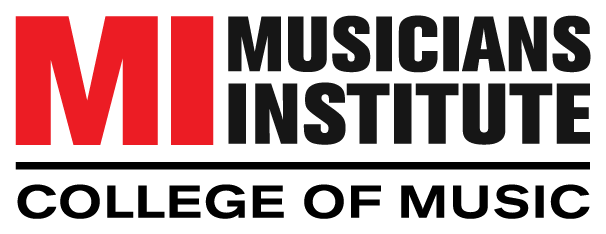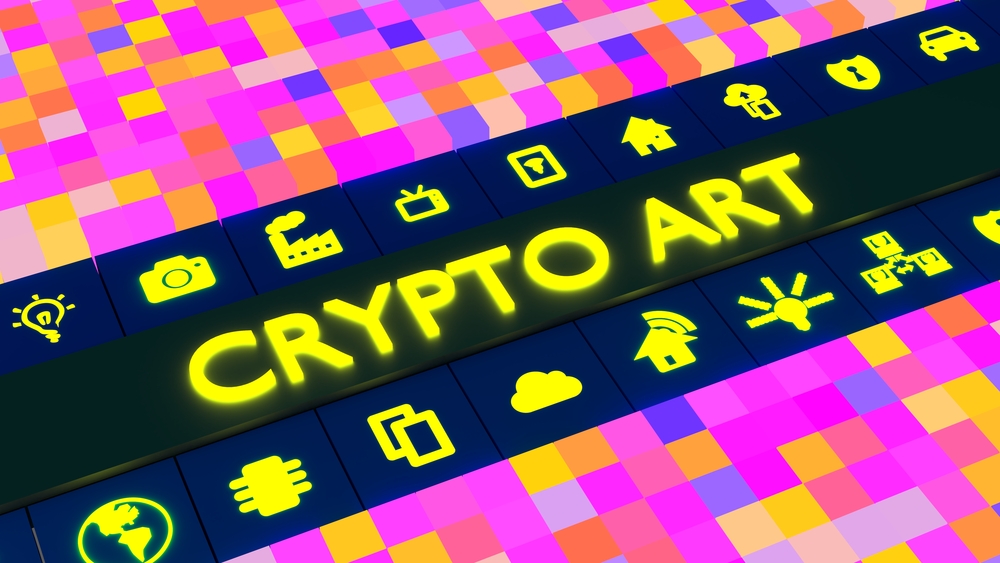A growing trend in the music industry is the rise of NFTs or non-fungible tokens. Transactions using NFTs allow audiences to participate in auctions for unique content from the artists they love. Currently, these tokens and the transactions that involve them empower the artists who sell them. Because these are brand new developments, only time will tell if NFTs are here to stay.
Let’s take a look at what NFTs are and how they are changing the music industry landscape.
Crypto Technology and Non-fungible Tokens
NFTs use cryptocurrency technology like that of Bitcoin or Ethereum.
People who exchange cryptocurrencies have secure digital wallets. These wallets carry their digital currencies. Unlike a bank with a record of all of its bank accounts, cryptocurrency uses blockchain technology to track transactions between wallets.

Blog Post
"*" indicates required fields
By submitting this form, I authorize Musicians Institute (MI) to make or allow the placement of calls, emails, and texts to me at the phone number that I have provided, including through the use of automated technology, or a prerecorded or artificial voice. I understand that I am not required to provide my phone number as a condition of purchasing any property, goods, or services. I agree to the terms of MI’s Privacy Policy. MI will not sell or rent your information to third parties, and you may unsubscribe at any time.
That means there is no record of all the cryptocurrency wallets that exist; there is only a record of transactions between wallets. Blockchain technology protects the currency inside wallets because anyone who wants to steal the currency inside a wallet must change the previous transactions that involved that currency.
NFT Transactions
Crypto transactions are secure and instant. There are no middlemen in the exchange, which makes NFTs so enticing for artists and fans.
Instead of exchanging cryptocurrencies, artists exchange NFTs. These come in concert tickets, limited-edition experiences, digital content, merchandise, and music. Fans participate in auctions for these tokens, and the highest bidders receive the content in their digital wallets in a secure transaction.
In these exchanges, artists can raise money for the content they auction off and keep all of it because these exchanges don’t involve a record company. Fans pay the price to get a unique piece of content, and the artist collects without having to split with anyone else.
Benefits of NFTs
2020 turned the music industry upside down when it eliminated live concerts—a significant income stream for artists and their labels. As the world remains digital, artists are looking for ways to connect and create for their audiences, and NFTs provide a new outlet for them with several benefits.
Convenience
The first significant asset to NFTs is their convenience. Fans just need to create a digital wallet to have the chance to receive the content and then participate in an auction for a chance to win. This makes winning content as easy as online shopping.
No Middlemen
There are a lot of middlemen in the music industry.
When fans buy an album, stream a song, or purchase merchandise—some of that money makes it to the artist, but a lot of it goes to the record company or the streaming platform. The same middlemen are present even when we buy tickets for concerts. Record companies take a portion of ticket sales, and while artists make money there too–COVID-19 shut down the live concert market in 2020.
As a fundamental asset to crypto exchange, NFT transactions are direct transfers between the participants. The artist gets the money, the fan receives the content in their digital wallet.
Unique Content and Experiences
Artists have a lot of flexibility over the items they want to auction off. These tokens can be digital, but they can also be physical. Albums, digital art, sound bites, merchandise, and concert tickets are all forms of non-fungible tokens that artists are exchanging. Fans are happy to receive these rare experiences and are willing to pay for the chance to receive them.
Potential Drawbacks of NFTs
Not all change is good, and there are certainly those who will not benefit from the rise of NFTs. As it stands, it is a growing trend—and only time will tell if it is here to revolutionize the music industry further or die out.
Difficult for New Artists
The demand for a token comes from the market for art from a particular musician. Popular or established acts have no problem putting up tokens for auction and drawing in eager fans. For emerging artists, this demand doesn’t exist yet. Newer artists don’t have as much opportunity to benefit from the latest music trend.
Legal Obligations
Some artists have auctioned off the rights for fans to use sample packs in music. The fan purchases the ownership of the samples for complete creative control. This is one kind of token that can create legal trouble later on for the musician.
Established musicians often agree to a contract when they work with a record label. As the artist creates and releases tokens, they must be careful of violating any terms of these contracts.
Final Thoughts
NFTs are allowing artists to create new possibilities and experiences with their fans. Musicians are continuing to be creative with what they offer to their fan bases. As the situation with NFTs develops, it could completely revolutionize the music industry like how the internet did.

